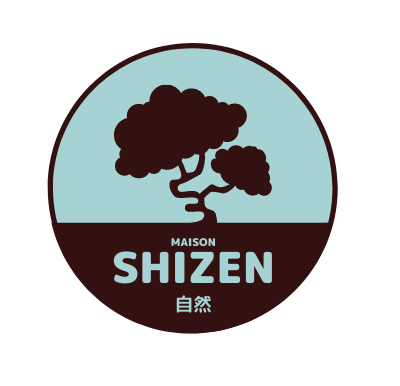
Merry Christmas et Happy New Year !
Winter has given way to autumn, unlike France, the temperatures are still mild on Japanese soil, the sky is azure blue and from my bath I can finally clearly see Mount Fuji. This view is a luxury that I never cease to appreciate!
It’s already been four months since I arrived, it’s my first Christmas outside of France and I understand very quickly that the holidays this year will be unlike any I’ve experienced before!
We are in December, Japan is about to close the year 1988, a certain effervescence seizes the country. I’m going to experience my first Oshogatsu, the Japanese New Year, but I don’t know yet that December will be a very loooong month of celebrations that are hard to escape!
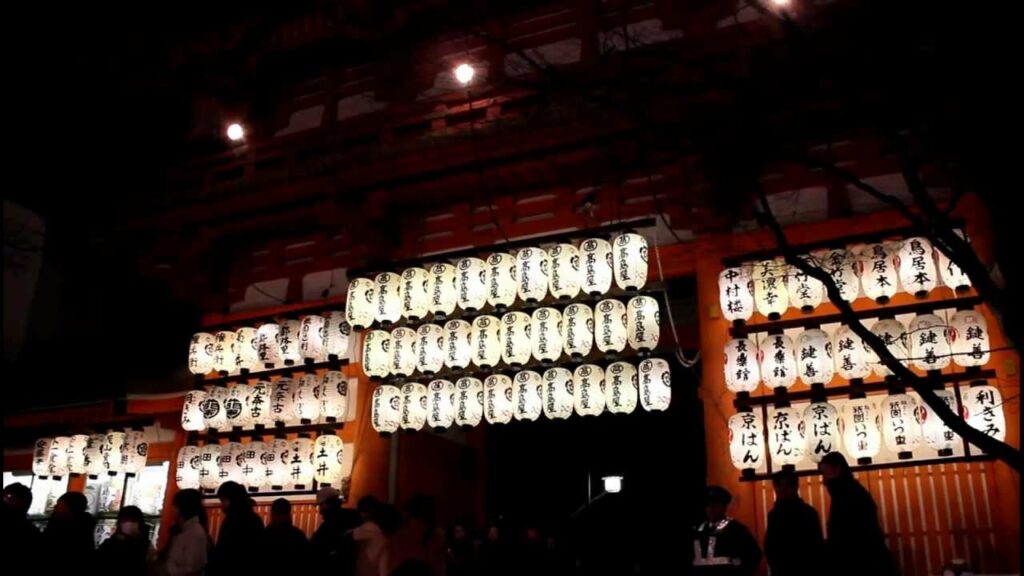
Japan is a country of traditions, good or bad some would say (that is not the question), some of which can be surprising or even disconcerting….
I still work in a language school where many nationalities rub shoulders, each with their own cultural baggage and their own customs: St Patrick’s Day and Halloween for the Irish, Thanksgiving for the Americans, the medley of 13 desserts for me (a Provençal tradition arranged with Japanese sauce because I will quickly realize that the calissons are not legion in these Eastern lands!) and for the Japanese Bonenkai, which means in its literal translation “meeting to forget the year” but which could be translated by “drinking alcohol every night with friends or colleagues”!!!
The Japanese like to meet in Izakaya, a kind of tapas bar. Bonenkai is an opportunity to go there and drink from the past year, to relax in a very festive atmosphere where the hierarchy no longer exists and tongues are loosened more freely under the influence of alcohol. This is my first Bonenkai, I am reserved, my Judeo-Christian upbringing does not allow me (yet) to these Bacchanals, my colleagues are much more comfortable, they have lived longer than me in Japan and therefore know better the workings of this highly codified society.
They are therefore not surprised to see our boss (Japanese) totally drunk, staggering, calling people out, laughing at the very harsh remarks, sometimes contemptuous, of his employees. Despite the fumes of alcohol, I struggle to feel perfectly at ease with this totally uninhibited boss like my colleagues. I think about tomorrow, wonder how he will react to the memory of that evening.
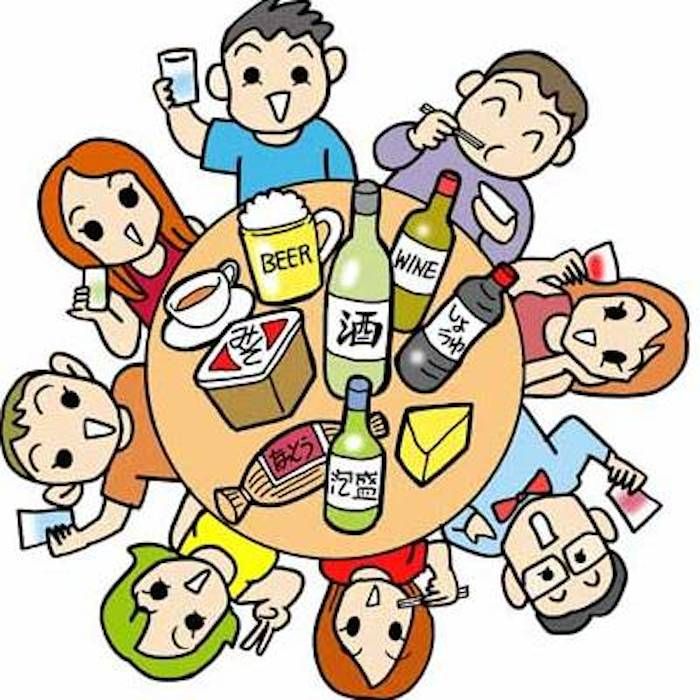
Against all odds, the next day no one seems to remember the evening, not even the boss who has put on his distant Japanese boss costume. I understand then, that everything that happens in a Bonenkai stays in a Bonenkai! My next ones will be more festive!!
In this month of December Tokyo is starting to light up and so I decide to give our little apartment a festive air. Without telling my sweetheart, I would like to recreate a Provençal Christmas atmosphere to surprise him by making him discover my traditions in return.
I have always had a nativity scene at home (I was born in Marseille), obviously there is little chance of finding one in Tokyo (I remind you that we are still in the 20th century) and even less the santons, these little clay men that I liked to buy in my childhood on the stalls of the Canebière market during the holidays.
My father will be my savior here, after a phone call (whose salty bill will ultimately prove to be higher than the addition of the crib and the santons themselves!), He will send everything to me by post the next day.
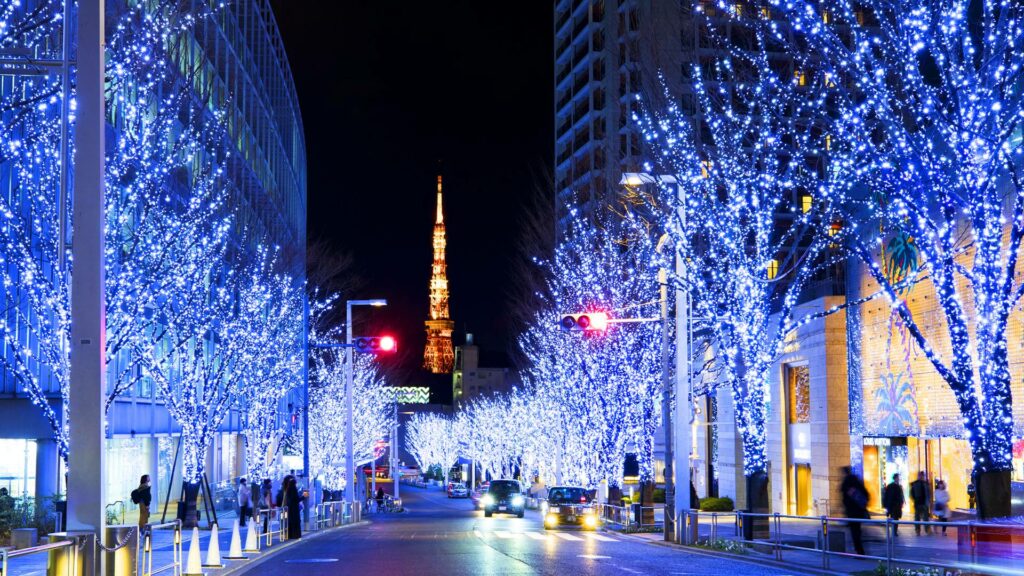

When I come home still disappointed with my purchase, my sweetheart explains to me that the end-of-year celebrations in Japan are the exact opposite of those in the West. At Christmas, we go out with family, couple or friends to celebrate, while on New Year’s Eve we eat a dish of Soba or Udon (these noodles are a symbol of longevity), then we go to pray at the Shrine. . In front of my probably flabbergasted head, he explains to me that in Japan, we are born Shintoists but we die Buddhists.
And yes, this country, although not very religious, has two religions; Shintoism, the traditional religion that of the emperor, and Buddhism arrived from China in the fifth century. Japan has always been a country very open to other cultures, which it easily integrates into its own but by adapting them to its own traditions, and so Christmas has not escaped the rule, we celebrate it in a pagan way!!!
But I’m not at the end of my surprises, I also learn that the Japanese practice spring cleaning but… in winter, the Osoji, translated as “Great Cleaning” is a sort of purifying ritual which consists of cleaning from top to bottom. fills the house, the school or the offices of his company, in order to enter the new year clean and washed of all that was harmful during the past cycle.
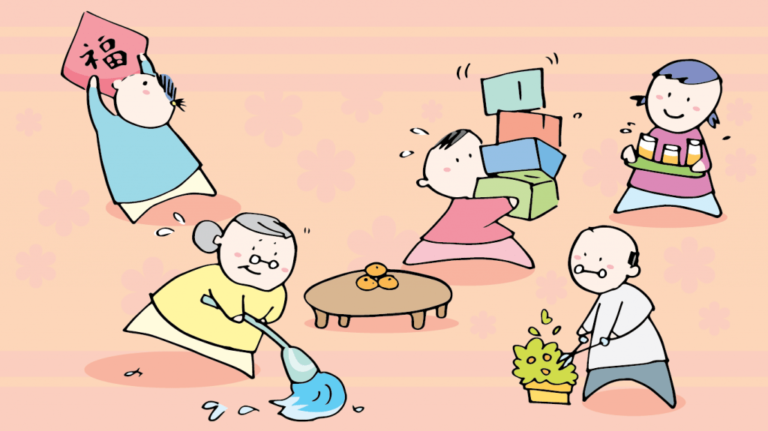
I still go from surprise to surprise because I also learn that during the three days of Oshogatsu, all the shops, restaurants will be closed and that traditionally meals are prepared in advance to be kept in a magnificent lacquered Bento box.
Finally, I’m quite excited at the idea of spending the end of year celebrations in a very different way (my mother, on the other hand, will never recover from her nightclub outing on December 24 of the following year when she will come to see me!)
Between two Bonnenkai (my liver will never last until the end of the year!), my sweetheart decides to make me discover in winter the Onsens, the hot springs of volcanic origin.
We will sleep again in a Ryokan, this traditional accommodation where we sleep on the floor on futons.
This time there will be no indoor baths but only Rotenburo, outdoor baths in the snow. At first glance, the idea doesn’t really excite me… I’m not really of Swedish origin and undressing in the snow to slip into water that fluctuates between 40 and 44 degrees doesn’t excite me any more than the salsify in the canteen!
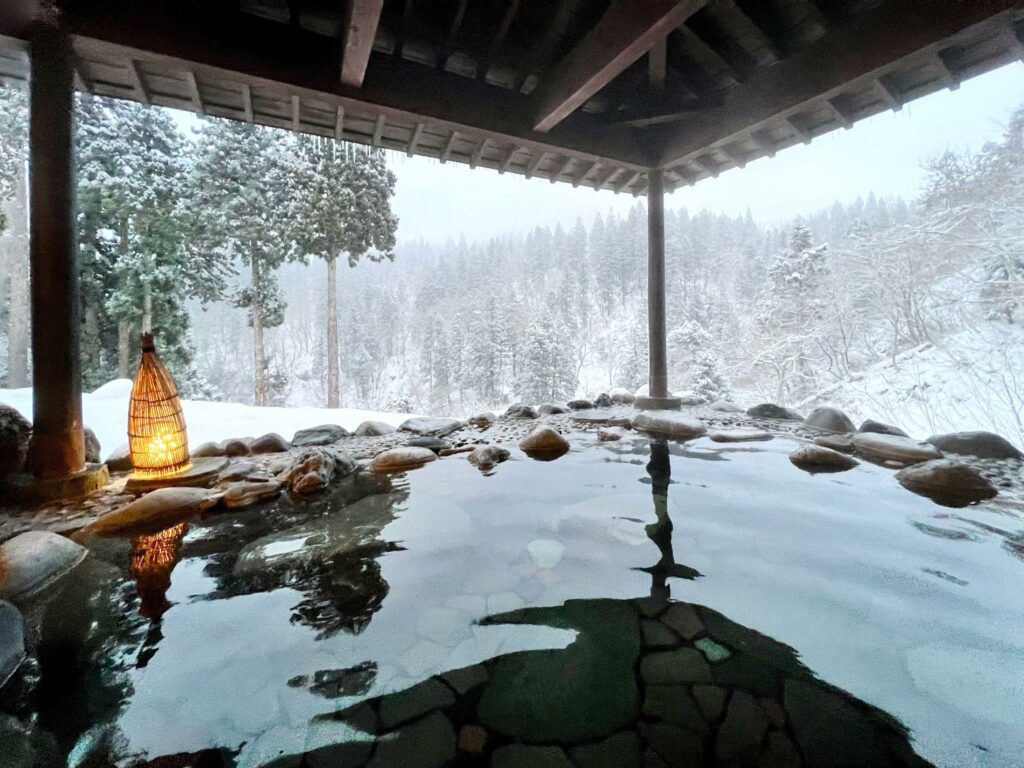
We decided to go to the Nagano region, a region that would later become famous thanks to the Winter Olympics in 1998. I had already been to a Ryokan in the fall, I found the experience magnificent but I have to say winter in the Japanese Alps is magical.
When we arrive, unlike the first time, I am not charmed by the building and the hostess, but by the surroundings where everything is white, immaculate, unreal.
At the foot of the inn, the Rotenburo smokes and against all odds, I have only one desire: to rush there!
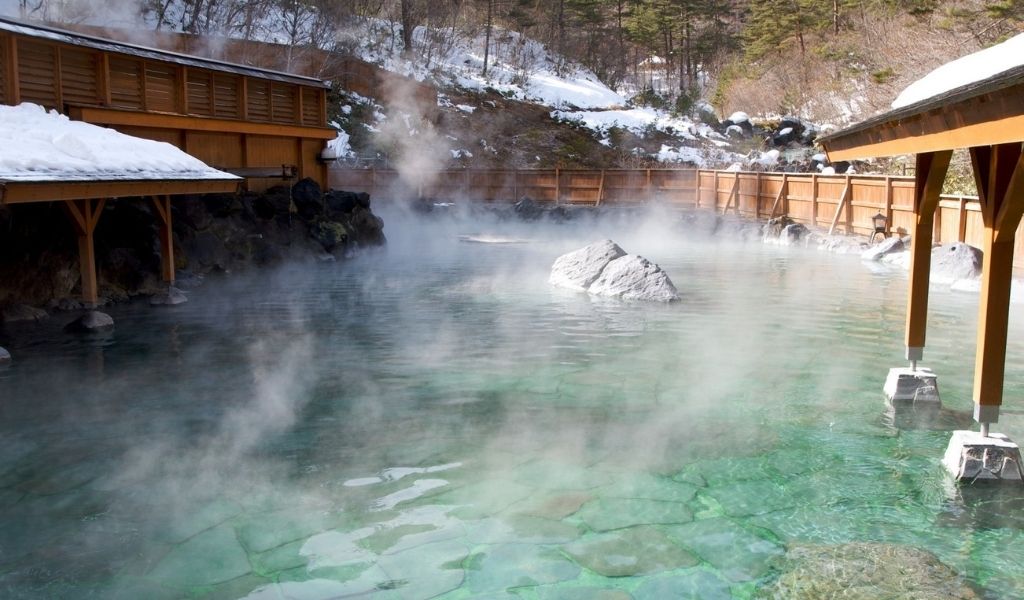
After a delicious experience in Ryokan on Futons and Tatamis, we return to Tokyo to begin the Osoji and start preparing for the end of year celebrations.
It’s December 31 and unlike other years I’m not getting ready to go “party” but rather to go to the most beautiful shrine in Tokyo: Meiji Jingu. You have to be there before midnight to hear the 108 bells ringing. This atmosphere reminds me of the midnight mass in Provence, the pastorals and I feel a bit nostalgic (I miss France…).
But when we arrive, nostalgia gives way to amazement, I have the impression that All of Tokyo has come together here, there are thousands of people.
In Europe only the Pope provokes such fervor!! After long minutes of waiting (my Mediterranean temperament will need a few years of acclimatisation to reach calm and zen!!), we finally reach the altar where we ring the bell, we throw a coin and we buy an Omamori, a kind of lucky amulet that we hang with others.
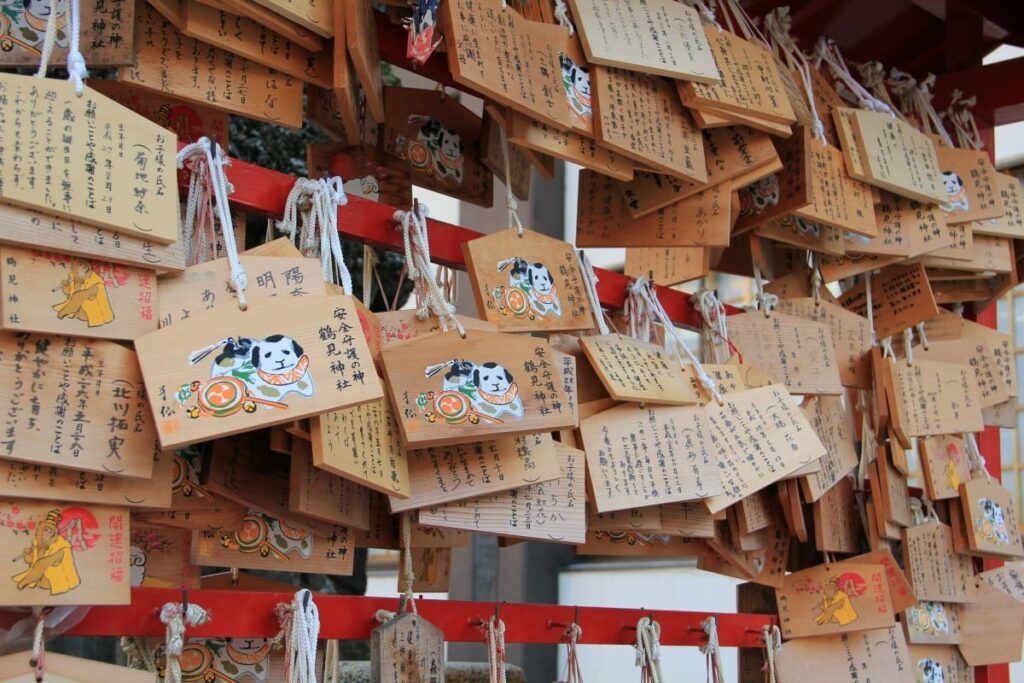
And as the Japanese are very superstitious, we take the opportunity to also buy an Omikuji, a paper that predicts good fortune.
If the prediction is bad, it is customary to tie it to a tree near the sanctuary, and if it is good, you can slip it into your bag to have it with you.
Mine is rather a good omen, so I will not hang it on the tree but I will keep it preciously in my purse, in the hope that it will bring me its share of beautiful surprises for this new year!
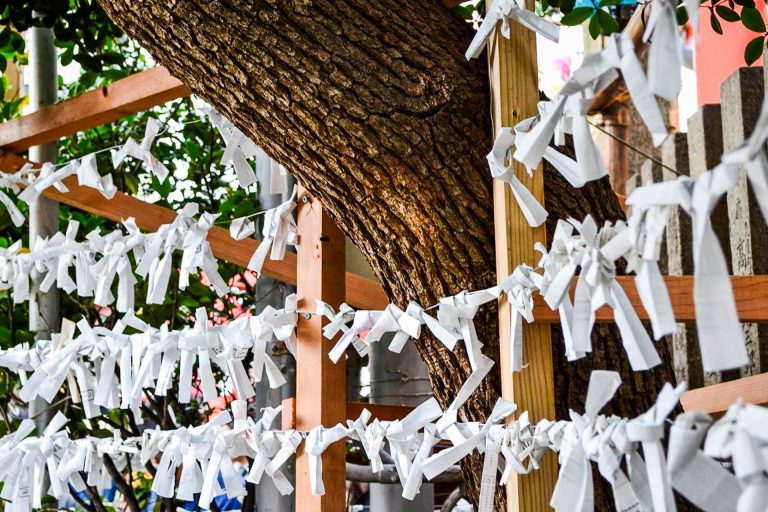
After sharing this sacred moment with thousands of Japanese people, we go home and drink the first sake of the year (yes, I know, there is a lot of alcohol in this article, I like traditions!), but this first sake is supposed to bring good health (sic) because it is made from medicinal plants.
It is January 1st, Tokyo is calmer than usual, the excitement has given way to a certain peace of mind.
The Japanese either stay at home or return to their hometowns, but all share family Osechi Ryori, the traditional meal they have prepared in advance to avoid cooking during the holidays.
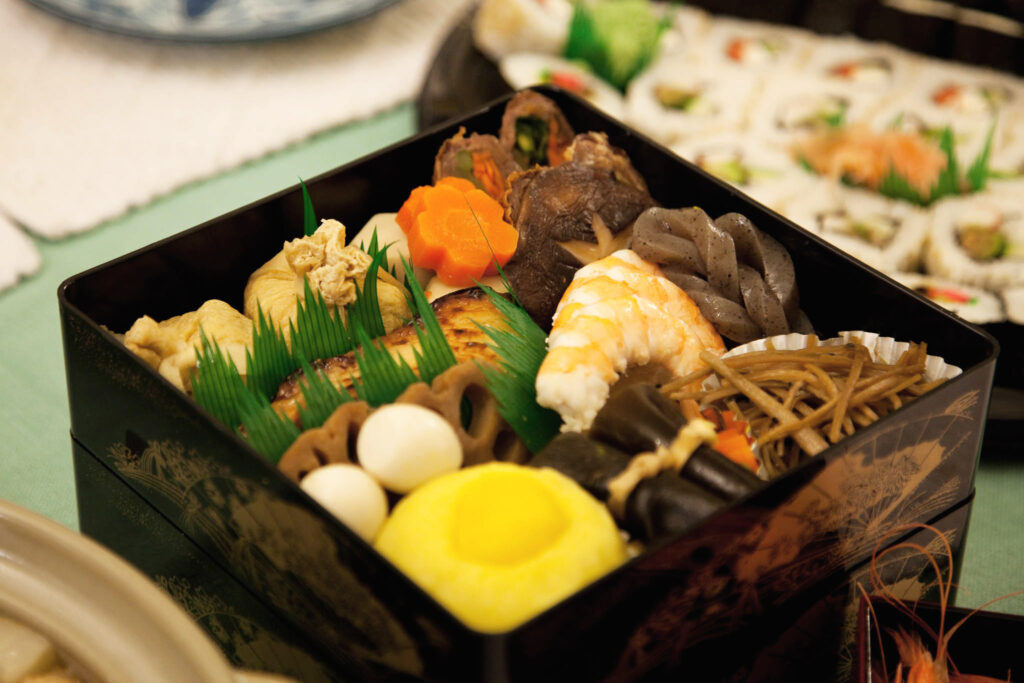
I’m taking advantage of these three days of absolute calm to explore Tokyo, this city that will become my home for the next ten years, but I don’t know that yet!!
Returning to work, I discovered another tradition of this beginning of the year, the Shinnenkai, which could be translated as “let’s celebrate the new year” but which in fact consists throughout the month of January of getting together with colleagues and friends in Izakayas….
Reminds you of something? And yes, the Bonenkai in December comes in Shinnenkai in January, even if a little less popular! We come back to this famous Japanese culture where drinking alcohol allows the Japanese to speak with less restraint and with an open heart.
The year 1988, full of twists, closed to make way for 1989 (am I going to make my revolution?!). I have been in Japan for almost six months. Even if some things destabilise me), I feel good in this country which welcomed me with kindness and above all taught me one thing: the Shoganai, or the impossibility of controlling everything that happens, in other words letting go socket!
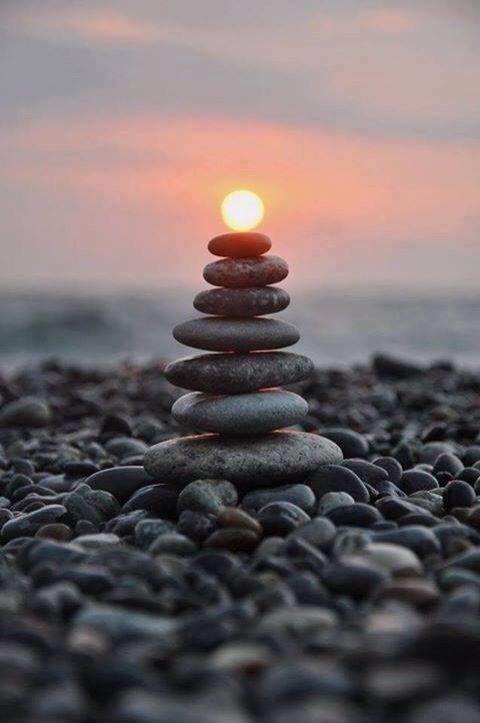
While waiting for my next article, do not hesitate to come and visit my site
See you soon, Mata Ne!!
